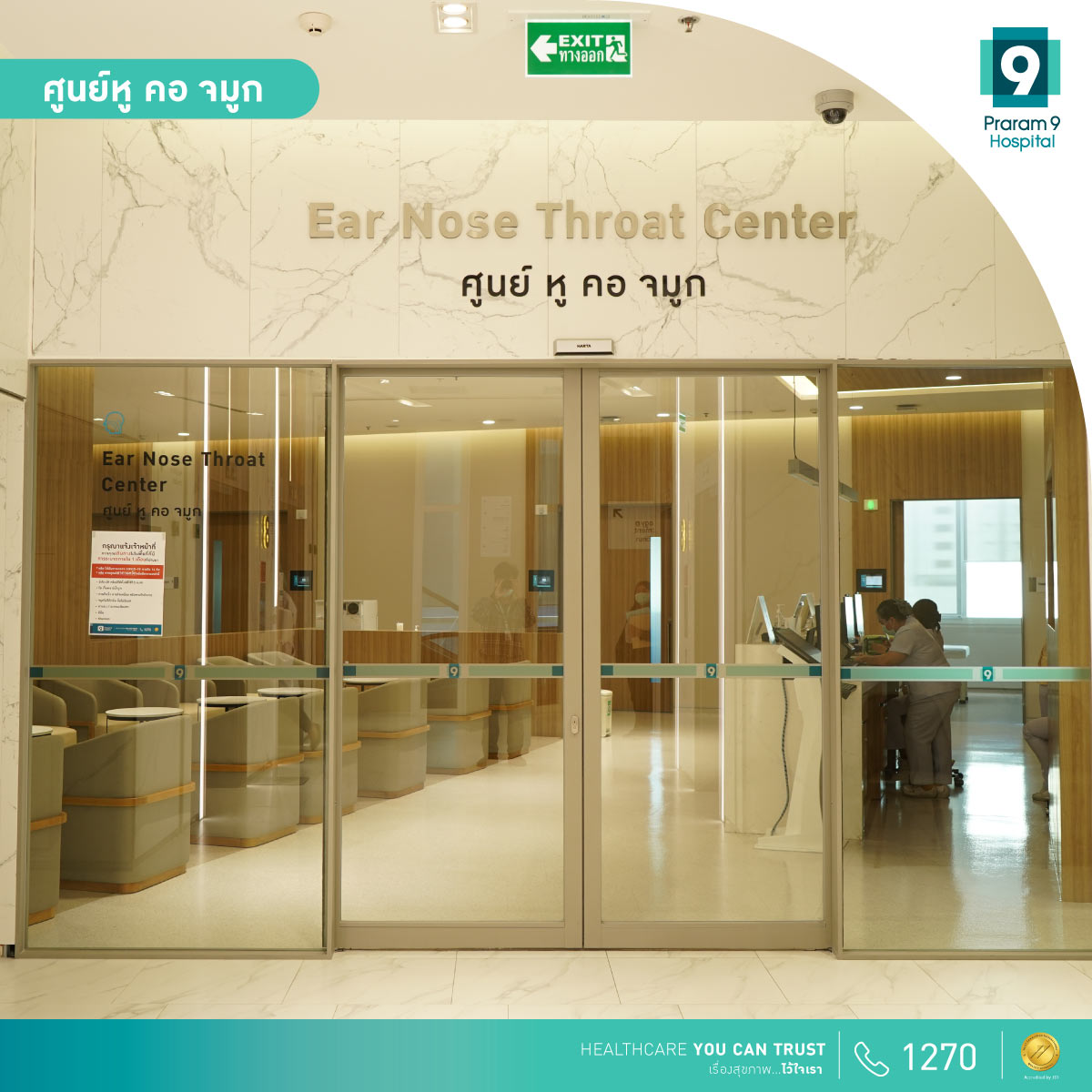Endoscopic sinus surgery is a minimally invasive treatment for chronic sinusitis, which differs from traditional methods that require external incisions. This technique enables surgeons to operate with precision and speed while minimizing damage to surrounding tissues. Chronic sinusitis is an inflammation of the sinus cavities, leading to symptoms such as nasal congestion, facial pain, and difficulty breathing, which can affect the quality of life. Endoscopic sinus surgery offers an alternative treatment option to alleviate and manage these symptoms.
Table of contents
- What is Endoscopic Sinus Surgery?
- What Conditions Can Endoscopic Sinus Surgery Treat?
- Advantages of Endoscopic Sinus Surgery
- How is Endoscopic Sinus Surgery Performed?
- Preparation for Endoscopic Sinus Surgery
- Risks and Side Effects of Endoscopic Sinus Surgery
- Can Endoscopic Sinus Surgery Provide a Complete Cure?
- Conclusion
What is Endoscopic Sinus Surgery?
Endoscopic Sinus Surgery (ESS) is a minimally invasive surgical procedure performed in the nasal cavity to treat chronic sinusitis and other sinus-related conditions. It differs from traditional sinus surgery, which typically involves large external incisions. Instead, this surgery is conducted through the nostrils using an endoscope, a thin and flexible tube equipped with a light and camera at its tip.
During the surgery, the doctor inserts the endoscope into the nasal passages to visualize the sinuses and identify any blockages or abnormalities. Surgical instruments are then passed through the endoscope to remove abnormal tissue and open blocked sinus passages. The goal of endoscopic sinus surgery is to restore normal sinus function, alleviate symptoms, and prevent recurrent infections.
What Conditions Can Endoscopic Sinus Surgery Treat?
Endoscopic sinus surgery can effectively treat various conditions related to the sinuses, including:
Chronic Sinusitis
This common condition involves prolonged inflammation and swelling of the nasal passages, often leading to nasal congestion, facial pain or pressure, and difficulty breathing through the nose. Endoscopic sinus surgery can help improve sinus drainage and alleviate symptoms in patients suffering from chronic sinusitis.
Nasal Polyps
These are non-cancerous growths in the lining of the nasal passages that can cause blockage and chronic inflammation, leading to symptoms such as nasal congestion, runny nose, and reduced sense of smell. Endoscopic surgery can remove nasal polyps and improve breathing.
Sinus Tumors
Although rare, tumors can develop in the nasal passages. Endoscopic surgery may be used to remove these tumors, especially if they are benign. In cases of malignant tumors, additional treatments such as radiation or chemotherapy may be necessary.
Sinus Infections
Recurrent or severe sinus infections that do not respond to other treatments may require surgery. Endoscopic sinus surgery can remove infected or damaged tissue, improve drainage, and reduce the risk of future infections.
Structural Abnormalities in the Nasal Cavity
Structural issues, such as a deviated septum or narrow sinus passages, can contribute to chronic sinusitis. Endoscopic surgery can correct these abnormalities, improving airflow and reducing symptoms.
Mucoceles
Mucoceles are benign cysts filled with mucus that can block sinus drainage pathways. Endoscopic sinus surgery can remove mucoceles and restore normal sinus function.
Allergic Fungal Sinusitis (AFS)
This condition involves excessive growth of fungi in the nasal passages, often associated with allergic reactions. Endoscopic surgery may be recommended to remove fungal debris and improve sinus drainage.
Advantages of Endoscopic Sinus Surgery
Since this procedure is performed entirely through the nostrils, there are no external incisions, resulting in less pain, no external scarring, and a shorter recovery time compared to traditional surgery.
The endoscope provides clear visibility for the surgeon, allowing for more precise surgical procedures.
Most patients can return to their normal activities within a few days to a week after the surgery.
Endoscopic sinus surgery has a lower risk of complications, such as bleeding, infection, and damage to surrounding structures, compared to traditional surgery.
How is Endoscopic Sinus Surgery Performed?
Endoscopic sinus surgery is performed by an otolaryngologist (ENT specialist) under general anesthesia. The procedure begins with a thorough preoperative evaluation of the patient. Once the patient is under anesthesia, the surgeon inserts an endoscope into the nasal passages to obtain a clear view of the sinuses.
The surgeon identifies issues such as blockages or polyps and then inserts specialized instruments through the endoscope to remove the problematic tissue. After removing the tissue, the surgeon flushes the sinus cavities to clear out any debris and enhance the effectiveness of the treatment.
Post-surgery, patients may experience mild pain at the surgical site and typically require a short recovery period.
Preparation for Endoscopic Sinus Surgery
Before the surgery, patients will undergo a thorough medical evaluation by an ENT specialist. This includes a physical examination, CT scans, MRIs, and blood tests to assess the condition of the sinuses and identify any surgical risks. Patients should bring all their regular medications or provide a list to the doctor, as some medications may need to be temporarily stopped to reduce the risk of bleeding.
Patients should follow pre-surgery instructions such as fasting and quitting smoking to minimize complications.
Risks and Side Effects of Endoscopic Sinus Surgery
Endoscopic sinus surgery is generally considered safe and effective for treating various sinus conditions. However, like any surgical procedure, it carries some risks and potential side effects, including:
- Excessive Bleeding: While bleeding is typically minimal, there is a risk of significant bleeding during or after the surgery.
- Postoperative Infection: Although rare, infections can occur after surgery. Patients are usually prescribed antibiotics to reduce this risk, and following proper postoperative care instructions can further minimize the likelihood of infection.
- Temporary Loss of Smell or Taste: It is common to experience a temporary reduction in the sense of smell or taste due to swelling and inflammation in the nasal passages. These changes usually resolve as the tissue heals.
- Anesthesia Risks: General anesthesia carries inherent risks, including allergic reactions, respiratory problems, and cardiovascular complications. However, these risks are generally low and are carefully managed by the anesthesiologist.
Proper preoperative evaluation and following postoperative care instructions can help mitigate these risks and ensure a smooth recovery.
Can Endoscopic Sinus Surgery Provide a Complete Cure?
Endoscopic sinus surgery can significantly alleviate symptoms for individuals suffering from chronic sinusitis due to polyps, fungal growths, and other obstructions. However, achieving a complete cure depends on various factors such as the underlying cause and individual characteristics of the patient.
For patients with allergies or immune system disorders, ongoing care and medication may be necessary even after surgery to manage symptoms and prevent recurrence. Thus, while the surgery can provide substantial relief and improve quality of life, it may not guarantee a permanent cure for everyone.
Conclusion
Endoscopic sinus surgery is a less invasive and highly effective option for patients needing treatment for sinus issues. This method reduces postoperative discomfort, shortens recovery time, and provides better outcomes compared to traditional surgical methods.






